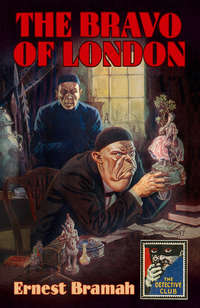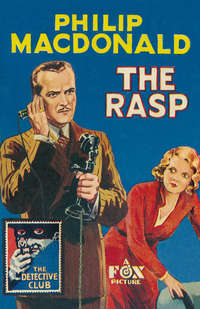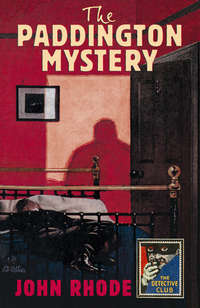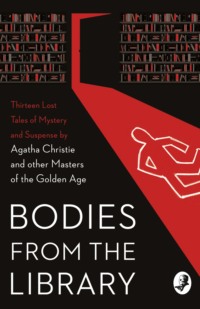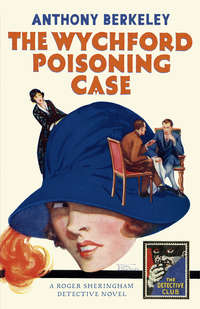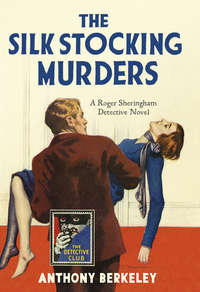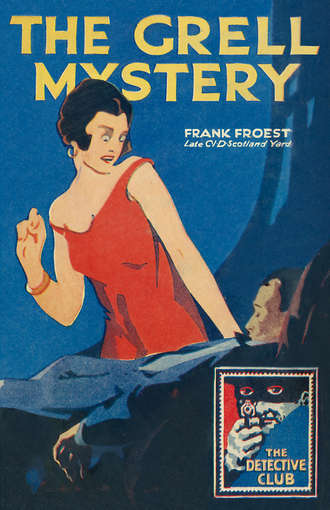
Полная версия
The Grell Mystery
Foyle took the chair, and a buzz of conversation became general. It was a business conference of experts. Views were exchanged on concrete problems; the movements of well-known criminals discussed. ‘Velvet-fingered Ned’ had disappeared from Islington and reappeared in Brixton. ‘Tony’ Smith was due out of prison. Mike O’Brien had patched up the peace with ‘Yid’ Foster, and when they got together—
So the talk went on, and so every district learned what was taking place in other districts. The superintendent sat silent for a while, listening. At last his smooth voice broke in.
‘The man Ivan, whose description was circulated, is not to be touched now. Tell your men to let him alone if they come across him.’
There was a deep chorus, ‘Very good, sir,’ and Foyle, with a nod of dismissal, left the room. He stopped to make an inquiry in the clerk’s office, and passing along the corridor unlocked a door and pressed a bell.
In under half an hour a big labourer, with corduroys tied about the knees, lurched unsteadily out of the Lost Property Office and passed into Whitehall. Rough, tousled hair, an unkempt moustache, and a day’s growth of beard on the chin were details warranted to stand inspection. Heldon Foyle rarely used a disguise, but when he did he was careful that nothing should get out of order. Hair and moustache were his own, dyed and brushed cunningly. Yet, when he reeled against Green near the Albany, the inspector, who was an observant man, pushed him roughly aside with an anathema on his clumsiness.
‘Didn’t ’urt you, did it?’ stormed the labourer aggressively. ‘’Course I look where I’m going.’ Then in a lower tone: ‘I’m Foyle. I got your telephone message. Anything moving now?’
‘If you don’t go away I shall call a constable.’ Green had been quick to see his cue and spoke loudly. He went on rapidly. ‘He hasn’t stirred out. A post-office messenger has just gone in with a letter for him. I said I was expecting one, and got a glimpse at it.’
‘All right, old pal. Don’t get excited. You go home and tell the missus all about it,’ retorted the labourer.
Green walked rapidly away, spoke a few words to a man who was standing on the other side of the road, deeply interested in a bookseller’s window, and departed.
The superintendent felt in his pockets and produced a couple of boxes of matches. A constable strolled up, dignified and stern. A swift word in an undertone sent him away with burning cheeks.
In half an hour Foyle had sold a box of matches, for which he received sixpence with profuse thanks and inward disgust. If he sold his second box and still hung about, his loitering without excuse might attract undesirable attention. The contingency, however, did not arise, for a minute or two later Fairfield himself strolled into the street. Foyle rushed to open the door of a taxicab, which he hailed, but another tout was before him. Nevertheless, he heard the address.
‘Grave Street, Whitechapel,’ he murmured to himself, as the cab slipped away. ‘Ivan has got to work.’
A short argument with a second cab-driver, who distrusted his appearance, was cut short by a deposit of five shillings as a guarantee of good faith, and the superintendent also began the journey. Behind him a third cab carried the man who had been so deeply interested in the bookseller’s window.
CHAPTER XIII
GRAVE STREET, Whitechapel, is not a savoury neighbourhood. One may pass from end to end of its squalid length and hear scarce a word of English. Yiddish is the language most favoured by its cosmopolitan population, although one may hear now and again Polish, Russian, or German. In its barrack-like houses, rising sheer from the pavement, a chain of tenancy obtains, ranging from the actual householder to the tenant of half a room, who sublets corners of the meagre space on terms payable strictly in advance. A score of people will herd together in a room a few feet square, and never realise that they are cramped for space.
Here you will find petty thieves, versatile rascals ripe for any mischief, and sweated factory workers; here sallow-faced anarchists boldly denounce the existing order of things to their fellows and scheme the millennium. Slatternly women quarrel at the doors, and horse-flesh is a staple article of diet.
The neatly dressed Fairfield descending at the end of the street from his taxicab was as conspicuous among the unshaven idlers who hung about the pavements as the moon among the stars.
Sir Ralph picked his way towards a newspaper shop, his mind full of the message that had brought him to the spot. The letter delivered by the messenger had contained but a few words in printed characters.
‘IF YOU WOULD LEARN THE TRUTH ABOUT THE MURDER IN GROSVENOR GARDENS, COME IMMEDIATELY TO NO.— GRAVE STREET.’
There was no signature, no clue to the identity of the writer. Fairfield had leapt at the chance to do something. Even if it were a hoax it would occupy his mind for a time, and take his thoughts away from the sinister shadow that overhung him. Somehow, however, he did not think it was a hoax.
The newspaper shop displayed the number given in the note on its grimy facia. The baronet, as he moved towards it, was unconscious of the slouching figure of the labourer, who had been selling matches near the Albany, a few paces behind him. His foot was on the threshold of the shop when a man, black-bearded and swarthy, pressed an envelope into his hand.
Foyle watched the incident and his pace quickened. Before Fairfield had time to do more than glance at the inscription of the envelope he was abreast. He lurched inward and his fingers snatched quickly at the note. The next instant he was running with long, even strides for the open of the main road.
It was barefaced robbery, of course, but he had not the inclination to stick at trifles. That the note had some bearing on the case he was investigating he felt certain. There was only one way to get it at once, and that was to steal. Anywhere else but in Grave Street he would have waited to face the matter out. Not that Grave Street would have frowned upon a theft, but that he would have been forced to reveal his identity, and Grave Street was not a healthy neighbourhood for solitary detectives.
Sir Ralph stood thunderstruck, but someone else acted. The black-bearded man had disappeared. From somewhere there were a couple of dull thuds like a hammer falling upon wood, and Foyle heard the whistle of bullets over his head.
‘I’ll get even for that,’ he muttered between his teeth, but his headlong flight never slackened.
Behind him was a clatter of pursuing feet. Fairfield, recovering himself, had raised a cry and it was taken up.
‘Stop thief! Hold him!’
He passed the man who had been so eagerly intent on the bookshop. The man made a clutch at him, missed and fell headlong right in the path of Fairfield, now a few paces behind. The baronet tripped over his body and was thrown violently to the ground.
Foyle made a mental note in favour of Detective-Sergeant Chambers, who had so adroitly intercepted the pursuit. As he came to the main road he slackened his pace to a sharp walk, and dived into an underground station. He breathed a sigh of relief as he passed down the steps to the platform.
He had anticipated trouble, but pistol-shots in broad daylight, even in Grave Street, had been outside his calculations. He had recognised the peculiar report of an automatic pistol. His adversaries, whoever they might be, were obviously very much in earnest. Pistol-shooting at detectives is not a commonplace pastime even with the most reckless of criminals. Foyle decided on another and early visit to Grave Street, and promised himself grimly that the target should be someone else, if it came to shooting again. He was in danger of losing his temper.
Not until he had got in the train did he open the note that was still between his fingers. He frowned as he read it.
‘Curse it! This comes of acting on impulse. Why couldn’t I have waited! I had the whole thing in my hands.’
The note said simply: ‘I am alive. I must see you. Follow the man who gives you this note.—R. G.’
Heldon Foyle had seen much of Robert Grell’s writing during his search of the house in Grosvenor Gardens, and had no doubt that the note was his. His peace of mind was not increased by the reflection that had he waited and continued to shadow Fairfield he might have discovered the whereabouts of the missing diplomat. Now he had merely given notice as plainly as though he had shouted from the housetops that Fairfield was under observation. He had committed a blunder, and he did not forgive blunders easily, especially in himself.
Even a bath and a change into his normal clothing did not restore his equanimity. In his office he found Green, with a strange excitement in his usually stolid face.
‘Hello, Mr Green. What’s wrong?’ he demanded.
The veteran chief detective-inspector pulled at his moustache.
‘I don’t know, sir, yet. You’ve come just in time. Waverley is missing.’
‘Waverley missing! That’s nonsense. He was put on to relieve Norman in shadowing Ivan Abramovitch.’
‘He’s missing,’ repeated the other doggedly. ‘Ivan went into a shop with an entrance in two streets, and the man who was assisting Waverley slipped round to the other side. He waited there an hour, and then went to look for Waverley.’
The superintendent gave a short, contemptuous laugh.
‘Green, I guess you’ve been working too hard lately. You ought to apply for a fortnight’s leave. Can’t you see, Ivan came out and that Waverley never had time to give the tip to his man, but followed him straight away? There ought to have been three men on the job.’
Green drew himself up stiffly. Foyle had not recovered from the irritation caused by his own mistake, otherwise he would not have spoken as he did. Green was not the kind of man to hastily jump to conclusions.
‘A third was not available when Waverley left,’ he said. ‘Here is why I say Waverley is missing. It came by messenger five minutes ago, addressed to you. As senior officer I opened it.’
Foyle took a typewritten sheet of paper from the other’s hand. It read simply:
‘DEAR MR. FOYLE,—You had better call your men off. We have got one of them safe, and hold him as a hostage for our own safety. If your people go on trying to make things unpleasant for us, things will get unpleasant for him. This is not melodrama, but brutal fact.’
There was no signature. Foyle’s square jaw became set and grim. He had no doubt that the unknown writer fully meant the threat. He liked Waverley, yet the thought of the other’s peril did not sway him for a moment. The man had fallen a victim to one of the risks of his profession.
‘Do they expect us to back down?’ asked the superintendent harshly. ‘If Waverley has been fool enough to get himself in a fix, he must take his chance if we can’t get him out. Let’s have a look at this paper.’
He thrust his hand in a drawer, and, flinging a pinch of black powder on the letter, sifted it gingerly to and fro. In a few seconds four finger-prints stared out blackly from the white surface. They were at right angles to the type, and just beneath it. Foyle’s face relaxed in a pleased smile.
‘They’ve given us something that may help us, after all, Green,’ he cried. ‘Look here; these two middle ones are the prints on the dagger. Now let’s see if we can learn anything from the typing.’
Half an hour later three men stood in a tiny room, darkened, save for a vivid patch of white on a screen a yard and a half square. Foyle and Green watched the screen intently as the third man inserted the slide in the powerful magic lantern. Magnified enormously, the typewritten characters stood out vividly black against the white.
‘What do you make of it, Green?’ asked the superintendent after a pause.
‘Remington machine, latest pattern,’ answered the other briefly. ‘The letter “b” slightly battered, and the “o” out of alignment. Used by a beginner. There is double spacing between some of the lines and single in others. A capital “W” has been superimposed on a small one.’
‘That’s so,’ agreed his superior thoughtfully. ‘You might see if the Remington people can give us any help with that. If possible, get a list of all the people who have bought machines during this last six weeks. It’s a long shot, but long shots sometimes come off. And if you come into my room I’ll give you a pistol. It’ll be as well for you to carry one while you’re on this case. I was shot at myself, today.’
‘Thank you, sir, I think I’ll do without one,’ said the other quietly. ‘My two fists are good enough for me.’
‘As you like,’ agreed Foyle, and Green departed on his mission. When he returned, he walked into Foyle’s room and laid a long list before his chief. The superintendent cast his forefinger slowly down it.
‘October 14,’ he read, ‘Mr John Smith, c/o Israels, 404A Grave Street, Whitechapel.’ He looked up into the stolid face of Green. ‘That seems like it,’ he went on. ‘You and I will take a little trip this evening, Green. And I think you’d better have a pistol, after all.’
CHAPTER XIV
TO all callers, relatives, friends, newspaper men, alike, Eileen Meredith denied herself resolutely. ‘She has been rendered completely prostrate by the shock,’ said the Daily Wire in the course of a highly coloured character sketch. Other statements, more or less true, with double and treble column photographs of herself, crept into other papers. Night and day a little cluster of journalists hung about, watching the front door, scanning every caller and questioning them when they were turned away. Now and again one would go to the door and make a hopeless attempt to see some member of the household.
But Eileen was not prostrate, in spite of the Daily Wire. She wanted to be alone with her thoughts. Her gay vivacity had deserted her, and she had become a sombre woman, with mouth set in rigid lines, and with a fierce intensity for vengeance, none the less implacable because she felt her impotence. In such unreasoning moods some women become dangerous.
She had curtly rejected her father’s suggestion that she should see a doctor. Nor would she leave London to try and forget amid fresh surroundings.
‘Here I will stay until Bob’s murderer is punished,’ she had said, and her white teeth had come together viciously.
A night and a day had passed since her interview with Heldon Foyle. Reflection had not convinced her that his cold reason was right. She had made up her mind that Fairfield was the murderer. Nothing could shake her from that conviction. Scotland Yard, she thought, was afraid of him because he was a man of position. The square-faced superintendent who had spoken so smoothly was probably trying to shield him. But she knew. She was certain. Suppose she told all she knew? Her slim hands clenched till the nails cut her flesh, as she determined that he should pay the price of his crime. There was another justice than the law. If the law failed her—
A medical man or a student of psychology might have found an analysis of her feelings interesting. She had reached the border-line of monomania, yet he would have been a daring man who would have called her absolutely insane. Except to Foyle she had said nothing of the feeling that obsessed her.
With cool deliberation she unlocked a drawer of her escritoire and picked out a dainty little ivory-butted revolver with polished barrel. It was very small—almost a toy. She broke it apart and pushed five cartridges into the chambers. With a furtive glance over her shoulder she placed it in her bosom, and then hastily returned to her chair by the fire and picked up a book. Her eyes skimmed the lines of type mechanically. She read nothing, although she turned the pages.
Presently she flung the book aside and, without ringing for a maid, dressed in an unobtrusive walking costume of deep black. She selected a heavy fur muff and transferred the pistol to its interior. Her fingers closed tightly over the butt. On her way to the door she was stopped by an apologetic footman.
‘There’s a lot of persons from the newspapers waiting out in the streets, Lady Eileen,’ he said.
‘Indeed!’ Her voice was cold and hard.
‘They might annoy you. They stop everyone who goes in or out.’
She answered shortly and stepped out through the door he held open. There was a quick stir among the reporters, and two of them hastily detached themselves and confronted her, hats in hand. She forced a smile.
‘It’s no use, gentlemen,’ she said. ‘I will not be interviewed.’ She looked very dainty and pathetic as she spread out her hands in a helpless little gesture. ‘Can I not appeal to your chivalry? You are besieging a house of mourning. And, please—please, I know what is in your minds—do not follow me.’
She had struck the right note. There was no attempt to break her down. With apologies the men withdrew. After all, they were gentlemen whose intrusion on a private grief was personally repugnant to them.
The girl reached Scotland Yard while Heldon Foyle was still in talk with Green. Her name at once procured her admission to him. She took no heed of the chair he offered, but remained standing, her serious grey eyes searching his face. He observed the high colour on her cheeks, and almost intuitively guessed that she was labouring under some impulse.
‘Please do sit down,’ he pleaded. ‘You want to know how the case is progressing. I think we shall have some news for you by tomorrow. I hope it will be good.’
‘You are about to make an arrest?’
The words came from her like a pistol-shot. A light shot into her eyes.
The detective shook his head. He had seen the look in her face once before on the face of a woman. That was at Las Palmas, in a dancing-hall, when a Portuguese girl had knifed a fickle lover with a dagger drawn from her stocking. Lady Eileen was scarce likely to carry a dagger in her stocking, but—his gaze lingered for a second on the muff, which she had not put aside. It was queer that she should not withdraw her hands.
‘I don’t say that. It depends on circumstances,’ he said gently.
Her face clouded. ‘I will swear that the man Fairfield killed him,’ she cried passionately. ‘You will let him get away—you and your red tape.’
He came and stood by her.
‘Listen to me, Lady Eileen,’ he said earnestly. ‘Sir Ralph Fairfield did not kill Mr Grell. Of that I have proof. Will you not trust us and wait a little? You are doing Sir Ralph a great injustice by your suspicions.’
She laughed wildly, and flung herself away from him.
‘You talk to me as though I were a schoolgirl,’ she retorted. ‘You can’t throw dust in my eyes, Mr Foyle. He has bought you. You are going to let him go. I know! I know! But he shall not escape.’
The superintendent stroked his chin placidly. As if by accident he had placed himself between her and the door. He had already made up his mind what to do, but the situation demanded delicate handling.
‘You will regret this when you are calmer,’ he said mildly.
He was uncertain in his mind whether to tell the distraught girl that her lover was not dead—that the murdered man was a rogue whom probably she had not seen or heard of in her life. He balanced the arguments mentally pro and con, and decided that at all hazards he would preserve his secret for the present. She took a step towards the door. She had drawn herself up haughtily.
‘Let me pass, please,’ she demanded.
He did not move. ‘Where are you going?’ he asked. Her eyes met his steadily.
‘I am going to Sir Ralph Fairfield—to wring a confession from him, if you must know,’ she said. ‘Let me pass, please.’
‘I will let you pass after you have given me the pistol you are carrying in your muff,’ he retorted, holding out his hand.
Then the tigress broke loose in the delicately brought-up, gently nurtured girl. She withdrew her right hand from her muff and Foyle struck quickly at her wrist. The pistol clattered to the floor and the man closed with her. It needed all his tremendous physical strength to lift her bodily by the waist and place her, screaming and striking wildly at his face with her clenched fists, in a chair. He held her there with one hand and lifted one of the half-dozen speaking-tubes behind his desk with the other.
In ten minutes Lady Eileen Meredith, in charge of a doctor and a motherly-looking matron hastily summoned from the adjoining police station in Cannon Row, was being taken back to her home in a state of semi-stupor. Foyle picked up the dainty little revolver from the floor and, jerking the cartridges out, placed it on the mantelpiece.
‘You can never tell what a woman will do,’ he said to himself. ‘All the same, I think I have saved Ralph Fairfield’s life today.’
CHAPTER XV
HELDON FOYLE was more deeply chagrined than he would have cared to admit by the disappearance of Waverley. It was not only that one of the most experienced men of the Criminal Investigation Department had fallen into a trap and so placed his colleagues in difficulties. The very audacity of the coup showed that the department was matched against no ordinary opponents. There is a limit even to the daring of the greatest professional criminals. If there were professionals acting in this business, reflected the superintendent, the idea was none of theirs. Besides, no professional would have written the letter threatening the Yard. That was no bluff—the finger-prints proved that. To hold a Scotland Yard man as a hostage was a game only to be played by those who had much at stake.
Only one man shared Heldon Foyle’s confidence. That was Sir Hilary Thornton. To the Assistant Commissioner he talked freely.
‘It’s an ugly job for us, sir, there’s no disguising that. Naturally, they count on us keeping our mouths shut about Waverley. It’s lucky he’s not a married man. If the story of the way he was bagged becomes public property we shall be a laughing-stock, even if we get him out of his trouble. And if we don’t, the scandal will be something worse.’
‘Yes. It’s bad—bad,’ agreed the Assistant Commissioner. ‘The Press must not hear of this.’
‘Trust me,’ said Foyle grimly. ‘The Press won’t.’
‘I don’t like this affair of Lady Eileen Meredith,’ went on Sir Hilary. ‘After all, she has a good right to know the truth. Wouldn’t it be better to let her know that Grell is alive?’
Foyle jingled some money in his trousers pocket.
‘I hate it as much as you do, Sir Hilary. I can’t take any chances, though. Grell knows we know he is alive. When he finds that this girl has not been told he may try to communicate with her, and then we may be able to lay hands on him and Ivan, and so clear up the mystery. There’s another thing. As far as our inquiries through his solicitors and the bank go, he couldn’t have had much ready cash on him. He’ll try to get some sooner or later—probably through his friends. He’s already tried to approach Fairfield.’
‘I see,’ agreed the other in the tone of a man not quite convinced. ‘Now, when are you going down to Grave Street again? You’ll want at least a dozen men.’
‘There won’t be any trouble at Grave Street,’ answered Foyle with a smile; ‘and if there is, Green and I will have to settle it. More men would only be in the way. Our first job is to get hold of Waverley.’
‘But only two of you! Grave Street isn’t exactly a nice place. If there is trouble—’
‘We’ll risk that, sir,’ said Foyle, stiffening a trifle.
He went back to his own room and signed a few letters. Some words through a speaking-tube brought Green in, stolid, gloomy, imperturbable. The chief inspector accepted and lit a cigar. Through a cloud of smoke the two men talked for a while. They were going on a mission that might very easily result in death. No one would have guessed it from their talk, which, after half an hour of quiet, business-like conversation, drifted into desultory gossip and reminiscences.


